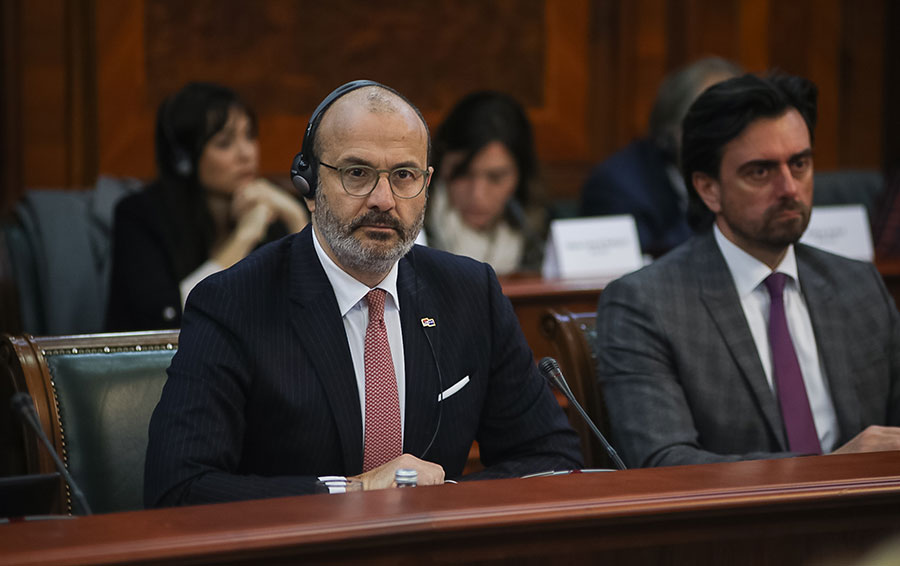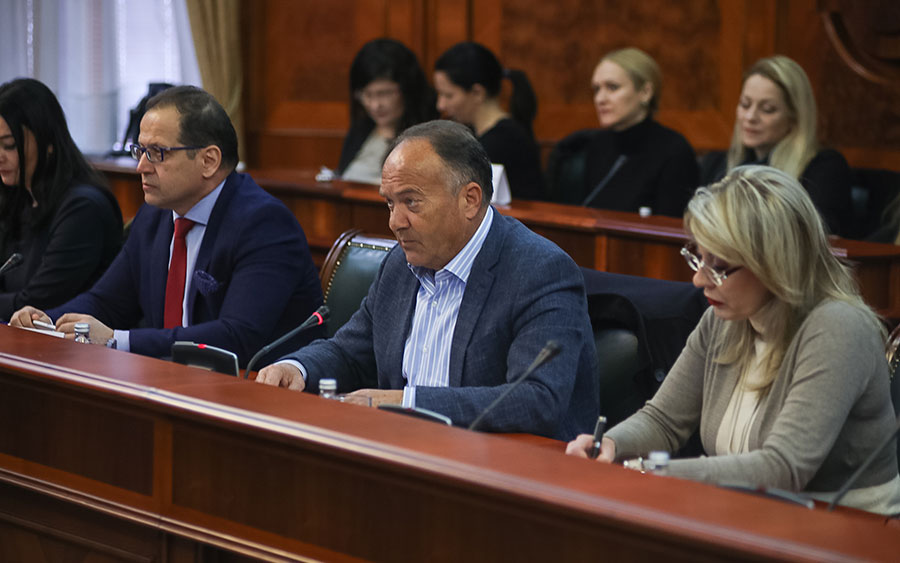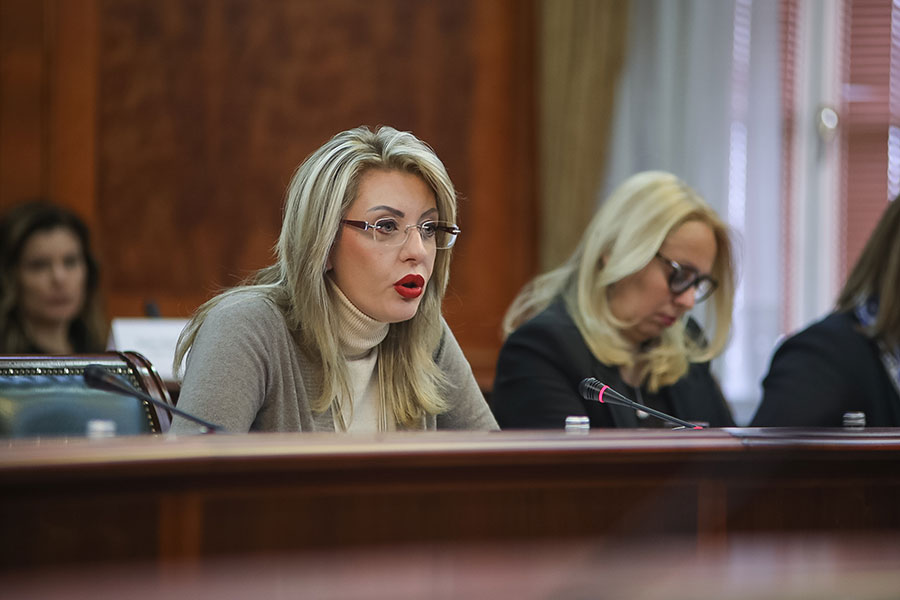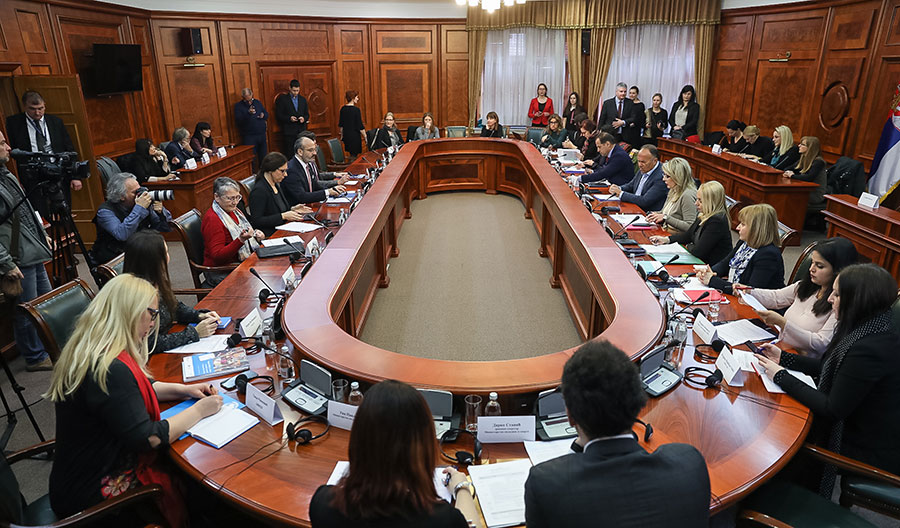Representatives of the Delegation of the European Union to Serbia and relevant ministries held the third session of the Inter-Ministerial Council to monitor and direct the implementation of education reform. This council brings together ministries in charge of education, labor, youth and sport, justice and finance, as well as institutions responsible for monitoring education issues in national minority languages and social inclusion of Roma.
Ambassador Sem Fabrizi, Head of the EU Delegation to Serbia, expressed his pleasure in participating in the dialogue on the ongoing education reform and support package worth over € 27 million.
“I congratulate you on the positive assessment of the European Commission in the field of education reform, based on which € 7.4 million was paid into the Serbian budget last December. I hope that these funds will significantly contribute to education reforms in Serbia,” says Ambassador Fabrizi.
 Good examples of education reform include modernizing curricula at all levels of education, working to establish a National Qualifications Framework and aligning it with European standards, as well as efforts to build vocational education to a greater extent with the knowledge and skills of students through more intensive employer practice.
Good examples of education reform include modernizing curricula at all levels of education, working to establish a National Qualifications Framework and aligning it with European standards, as well as efforts to build vocational education to a greater extent with the knowledge and skills of students through more intensive employer practice.
According to the Ambassador, there are also areas where additional efforts by institutions are needed. “A system to support children of disadvantaged socio-economic status needs to be further developed, with particular attention to the transition periods between education cycles, and a credible information system needs to be put in place that will give insight into international indicators of the educational situation. better visibility of the reforms themselves and communication with all stakeholders, “says Ambassador Fabrici. The Ambassador also reminded that in 2019 Serbia became a program country within the Erazmus Plus program, while continuing its successful participation in Horizon 2020.
Minister of Education, Science and Technological Development Mladen Sarcevic points out that progress in the implementation of education reform is a success for all involved in education reform activities, but adds that good results are not possible without serious planning.

“That is why responsibly and thoughtfully, we have begun work on developing a new education strategy for the next decade, with the professional support of the European Union and involving all stakeholders, with dialogue with all relevant actors at all levels, in line with the best practices of European countries and line with our Planning Law, “says Minister Sarcevic, with the expectation that the strategy will be completed in the fall.
Minister for European Integration Jadranka Joksimovic believes that education will be one of the most important activities that the EU will support through future funds. So far, 14 million euros have been paid into the Serbian budget from the Sector Budget Support Program. It is a specific type of support that is not given to all EU candidate countries, and the availability of sectoral budget support mechanism speaks to the seriousness of the institutions and how European pre-accession funds are used in Serbia, says Minister Joksimovic.

State Secretary at the Ministry of Labor, Employment, Veterans’ and Social Affairs Bojana Stanic announces additional measures aimed at youth employment, primarily through the measures of the National Employment Strategy until 2026 and the Strategy for Economic Migration, to stay young in Serbia. State Secretary at the Ministry of Youth and Sports Darko Stanic said that 35 projects worth a total of € 850,000 were supported through the Regional Youth Office (RYCO) in Serbia last year. Dragana Jovanovic Arijas from the Social Inclusion and Poverty Reduction Team states that 120 Roma have enrolled in the faculty through affirmative action during the last school year and that 200 mentors provide great support during their education.
Meetings in this format, with the topic of monitoring the progress of education reform, are held once a year. At the end of the talks, Ambassador Fabrici called for the continuation of the dialogue on education policies, urging that, in addition to representatives of international partners, civil society representatives should be involved in the process, while Minister Sarcevic thanked everyone involved in the improvement process.
Funds from the sector budget support program are allocated based on the successful course of education reform, following national strategic documents in this field. Besides, specific results in the quality of teaching and learning, teaching in minority languages, supporting the inclusion of Roma students in education, and linking the world of education and the world of the labor market are also taken into account. More specifically, a total of € 7.4 million was approved in December 2019, and some of the specific results are:
20,000 teachers attended training to deliver outcome-oriented teaching and introduce innovative teaching practices
700 Roma high school students received a scholarship as a form of support
250 teaching assistants have been hired to support the delivery of teaching in preschools and primary schools
the National Qualifications Framework was established and referenced to the European Qualifications Framework




